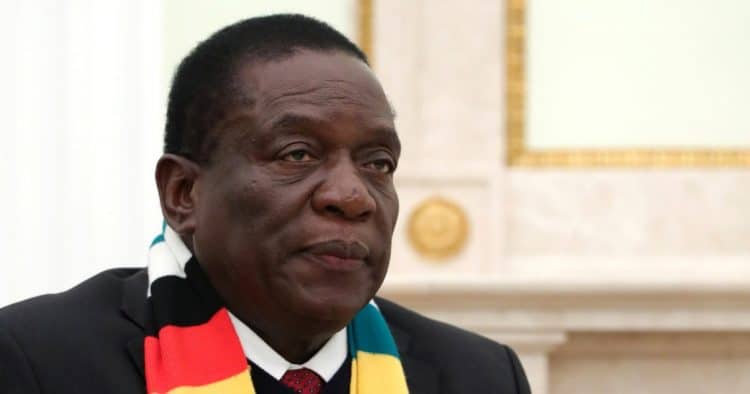
kremlin.ru, CC BY 4.0, via Wikimedia Commons, Cropped by Resist the Mainstream
Emmerson Mnangagwa, the President of Zimbabwe (formerly Rhodesia) has granted amnesty to 4,000 prisoners as part of efforts to decongest the country's crowded jails.
Pardoned prisoners at Chikurubi Maximum Prison in Harare were freed Friday after Mnangagwa released females, those with chronic ailments, juveniles, and those with life sentences who have served at least 20 years. No reprieve was granted to inmates sentenced for murder, treason, armed robbery, or those facing death sentences who were imprisoned for life.
“We had 24,000-plus prisoners inside. So, the 4,000 going out … prisons are still full,” Moses Chihobvu, head of the Zimbabwe Prisons and Correctional Services agency, said, according to Voice of America.
Chihobvu noted that the prisons and correctional services will benefit from the release by gaining space needed to accommodate inmates, but also in the savings gained from food and medical care.
As they left the jail, the pardoned prisoners refused to be identified but spoke to reporters. One departing inmate, with 15 months left on a sentence for unlawful entry, was thrilled and grateful for the news of Mnangagwa’s pardons.
“I am looking forward to using skills learned in jail to look after my family,” the inmate said, per the same Voice of America report.
Another pardoned prisoner, who had served two months after being arrested for stealing from an uncle, described the experience in jail as painful despite being treated well and learning a lot, vowing never to repeat the mistake.
The economic downturn is largely blamed for the persistently high prison population, according to Obert Muzembe, a criminologist at Muzembe Law Chambers.
“You look at the inflation rate in Zimbabwe. That puts pressure on the society, and many weak members of the society end up [resorting] to unlawful means to survive,” Muzembe explained to Voice of America.
“There are [a] number of issues that can be done in order to deal with the situation. Number one, of course, we need to educate the society, educate the community about crime,” he continued. “Number two, you need the church to come up. Napoleon Bonaparte once said that the church is the moral compass of the society. And then, obviously, the economic measures that need to be taken in order to improve the well-being of the people. But above all, we need society itself to come through in terms of education through the church and various stakeholders.”
Individuals who were pardoned last year and re-arrested did not qualify for the amnesty announced this week by Mnangagwa.
The current dysfunction of Zimbabwe's economic and political systems is only the latest development in its complex and tragic history, unique in the narrative of African decolonization.
In 1965, Rhodesia became the only British colony whose white leaders and administrators unilaterally declared independence from the British Empire. Though the Rhodesians were predominantly pro-British, they were alarmed by the post-colonial turbulence and violence of many other African countries to declare independence, and unilaterally declared independence on their own as a measure to maintain some semblance of a peaceful, prosperous civil society.
The Rhodesian system was markedly more progressive than neighboring Apartheid South Africa (notably, Rhodesia generally did not practice de jure legal discrimination based on race); however, the nation became an international outcast, unrecognized by any national government and receiving limited economic and military support from South Africa and Portugal until the mid to late 70s. Nonetheless, the Rhodesians maintained a strong civic society.
This, however, was much against the wishes of certain governments—namely, those of Angola, Mozambique, Tanzania, and Zambia, who at different points supported anti-Rhodesian guerillas in the Rhodesian Bush War. Though the Rhodesian military was overwhelmingly superior to its adversaries in most battles, the situation of the landlocked country became untenable after South Africa, under pressure from the United States, ceased supplying the country. The Rhodesian President Ian Smith yielded to majority rule in 1979, and within a year the government was controlled by former black nationalist guerilla Robert Mugabe.
After an early administration characterized by reconciliation with the white minority, Mugabe became increasingly rapacious of white-owned farms and fond of inflationary monetary policy. In 2017, Mugabe was ousted by a coup led by current President Emmerson Mnangagwa, who has attempted to reverse some of Mugabe's policies in order to curtail the damage which has befallen the little African nation.
Scroll down to leave a comment and share your thoughts.
Source link

